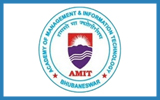University Management ERP Software is a comprehensive system designed to streamline the administrative, academic, and financial processes within a university or educational institution. This software integrates various modules to provide a centralized platform for managing student information, faculty data, course schedules, admissions, examinations, and more.
Assignment Resources and Material encompass vital tools, references, and materials utilized to complete tasks efficiently. This includes textbooks, online articles, software programs, and any other relevant resources essential for academic or professional assignments.


Lesson planning involves designing structured activities and resources to achieve specific learning objectives. A syllabus outlines the content, goals, and assessments for a course. Both are essential tools for educators to organize and deliver effective instruction.
Attendance and Leave Management streamlines tracking employee attendance, absences, and leave requests. It optimizes scheduling, ensures compliance with company policies, and enhances workforce management efficiency.


A "Student List" is a roster detailing enrolled students, typically including personal details and academic information. "Student Remarks" refer to comments or observations regarding a student's behavior, performance, or progress, often used for tracking and communication between educators.
Student Reports and Tracking streamline academic progress monitoring, offering insights into performance, attendance, and behavior. It enables educators to analyze trends, provide targeted support, and foster student success through data-driven decision-making.

Finance management involves overseeing the allocation and utilization of funds within an organization to achieve financial objectives efficiently. It encompasses budgeting, forecasting, investment decisions, risk management, and financial analysis to optimize resources and maximize returns.
Fees Management involves the systematic handling of financial transactions related to educational fees, including collection, tracking, and record-keeping. It ensures timely payments, transparent processes, and efficient management of financial resources within educational institutions.


Payroll management involves the administration of employee salaries, wages, deductions, and bonuses within an organization. It ensures accurate and timely compensation distribution while adhering to tax regulations and company policies, facilitating smooth financial operations.
Online admission management streamlines the application process for educational institutions, enabling seamless submission, review, and acceptance of student applications. This digital solution enhances efficiency and accessibility, facilitating smoother enrollment procedures.


The Exam Management System streamlines assessment processes, facilitating exam scheduling, administration, and grading. It offers secure access for students and instructors, ensuring efficient management of exams while maintaining integrity and confidentiality.

Streamlined administrative processes optimize efficiency by simplifying workflows and reducing unnecessary steps. Through strategic automation and clear protocols, organizations can minimize bureaucracy, enhance productivity, and focus resources on core objectives.

Effective Human Resource Management maximizes employee potential, fosters a positive workplace culture, and aligns organizational goals with talent development strategies. It encompasses recruitment, training, performance evaluation, and employee engagement to drive organizational success.

Enhanced communication and collaboration foster synergy and efficiency within teams. Through streamlined processes and open channels, ideas flow freely, boosting productivity and innovation. Effective communication tools and shared platforms facilitate seamless interaction, driving collective success.

Customization involves tailoring a product or service to meet specific needs or preferences, while configuration focuses on adjusting settings or parameters within a system. Both practices aim to optimize functionality and user experience.

Streamline admissions processes effortlessly with our efficient management system. From applications to enrolment, our solution optimizes workflows, enhances communication, and ensures a seamless experience for both administrators and applicants. Simplify admissions today.

Data migration involves transferring data from one system to another, ensuring its integrity, security, and compatibility. It encompasses planning, execution, and validation stages to guarantee a seamless transition while minimizing disruptions and data loss.

Data analytics and reporting involve extracting insights from data to drive informed decision-making. Through statistical analysis and visualization techniques, it transforms raw data into actionable information, aiding businesses in understanding trends and optimizing performance.

























A university management system is a software application designed to streamline and automate various administrative tasks and processes within a university or educational institution. It typically includes modules for student information management, admissions, enrolment, course registration, grading, scheduling, faculty management, financial management, and reporting.
Some benefits of using a university management system include:
• Improved efficiency and productivity by automating manual processes.
• Enhanced data accuracy and integrity through centralized storage and management of student and administrative data.
• Streamlined communication between students, faculty, and staff.
• Simplified course registration and scheduling processes.
• Efficient management of academic records and transcripts.
• Effective monitoring of student progress and performance.
• Financial management and accounting capabilities for tuition fees, scholarships, and budgets.
• Generation of reports and analytics to support decision-making.
Yes, a university management system can be customized to meet the specific needs and requirements of an educational institution. Different modules and functionalities can be tailored to align with the institution's workflows and processes. This customization ensures that the system caters to the unique requirements of the university, providing a more efficient and effective management solution.
The cost of a university management system can vary based on factors such as the size of the institution, the scope of features required, customization needs, and the software provider. It is best to contact software vendors directly to obtain pricing information tailored to your institution's specific requirements.
Most software providers offer training and support services to help institutions implement and use their university management systems effectively. Training can include on-site or online sessions, user manuals, video tutorials, and customer support for troubleshooting and assistance
Yes, ensuring the security of data within a university management system is crucial. Modern systems incorporate security measures such as data encryption, user authentication, access controls, and regular data backups. These measures help protect sensitive information, prevent unauthorized access, and ensure the privacy and integrity of student and administrative data.
The implementation time for a university management system can vary depending on factors such as the complexity of the institution's processes, data migration requirements, system customization, and training needs. It can range from a few weeks to several months, so it is essential to plan and allocate sufficient time for implementation.
A university management system can generate reports and provide data analytics to support decision-making and institutional planning. It can generate reports on student enrolment, course registrations, academic performance, financial information, and other relevant metrics. These reports help administrators and stakeholders gain insights into trends, identify areas for improvement, and make data-driven decisions for the university's growth and success.